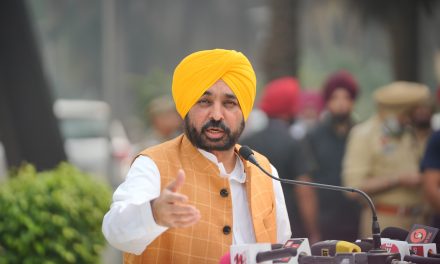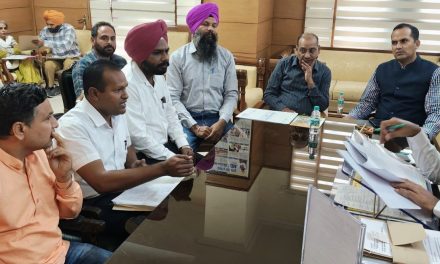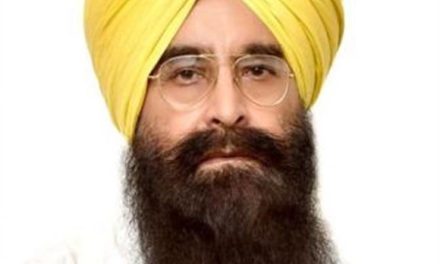PM Modi Inaugurates SEMICON India 2024 in Greater Noida, Paving the Way for India’s Semiconductor Ambitions
Prime Minister Narendra Modi inaugurated SEMICON India 2024 at the India Expo Mart in Greater Noida, Uttar Pradesh, today, marking a significant step in India’s pursuit to become a global leader in semiconductor manufacturing. The three-day event, running from September 11-13, will highlight India’s semiconductor strategy, policies, and ambitions to position the country as a hub for semiconductor technology.
Prime Minister’s Vision for the Semiconductor Industry
During his address, PM Modi expressed his gratitude to SEMI (Semiconductor Equipment and Materials International) for supporting the event and emphasized that India is one of only eight countries globally to host a semiconductor event of this magnitude. “This is the right time to be in India,” he remarked, reiterating the country’s readiness to become a key player in the global semiconductor industry. “In the 21st-century India, the chips are never down,” Modi quipped, underscoring India’s resilience and ability to seize opportunities even in challenging times.
India’s Integrated Semiconductor Ecosystem
Drawing a metaphor from the semiconductor industry, the Prime Minister compared India’s approach to an integrated circuit, highlighting how industries and the government work together in synergy. He noted that while businesses invest and create value, the government provides policy stability and an ecosystem that promotes ease of doing business.
He further pointed out that India is creating a skilled workforce for the semiconductor industry, including 85,000 technicians, engineers, and R&D experts. The country’s contribution to global semiconductor design, already at 20%, is set to grow, he said. PM Modi also spoke about the first meeting of the Anusandhan National Research Foundation, which aims to give a new direction to India’s research and innovation efforts.
Focus on Semiconductor Infrastructure and Workforce Development
PM Modi highlighted the government’s efforts to build robust semiconductor infrastructure in India. He outlined a “three-dimensional power” consisting of a reform-oriented government, a growing manufacturing base, and a tech-savvy market. This, he said, positions India uniquely in the global semiconductor landscape.
He also emphasized the importance of semiconductors in fulfilling the aspirations of India’s burgeoning digital society. The small chip, Modi said, plays a big role in ensuring last-mile delivery and the seamless functioning of platforms like UPI, RuPay Card, and Digi Yatra.
India’s Semiconductor Manufacturing Ambitions
India’s ambitious semiconductor policy offers 50% financial support for setting up semiconductor manufacturing facilities, with several state governments playing an active role. Modi revealed that India has already attracted investments worth ₹1.5 trillion in a short span, with many more projects in the pipeline.
Highlighting India’s vision to become a global semiconductor powerhouse, PM Modi reiterated his dream, “Our goal is that every device in the world will have an Indian-made chip.” He also mentioned the recently launched Critical Mineral Mission, which aims to secure critical minerals needed for semiconductor manufacturing through domestic production and overseas acquisition.
Global Collaborations and Diplomatic Engagements
PM Modi pointed to India’s increasing involvement in the global semiconductor supply chain. He recalled the era of “Oil Diplomacy” and stated that the world is now entering the era of “Silicon Diplomacy.” India’s role as Vice Chair of the Indo-Pacific Economic Framework’s Supply Chain Council and its partnership in the QUAD Semiconductor Supply Chain Initiative further underscores its commitment to shaping the future of the global semiconductor industry.
India has also deepened its cooperation with the United States, Japan, and Singapore, with multiple agreements already in place to foster semiconductor collaborations.
Building a Resilient Supply Chain
Modi emphasized the importance of building resilient supply chains, noting that disruptions caused by the COVID-19 pandemic and geopolitical conflicts have affected industries worldwide. India, he said, has emerged as a central player in strengthening these supply chains, particularly in the semiconductor sector.
The Prime Minister reiterated India’s focus on technology intertwined with democratic values. He warned that when technology operates without democratic principles, it can cause harm, but when combined, it has the power to drive positive global change.
A Vision for the Future of India’s Electronics Sector
Looking ahead, PM Modi set ambitious targets for India’s electronics sector, which is currently valued at over $150 billion. He outlined a plan to grow this to $500 billion by the end of the decade, creating 6 million jobs in the process. This expansion, he said, will directly benefit the semiconductor industry, with India aspiring to manufacture not just semiconductor chips but the finished products as well.
The Prime Minister concluded by expressing confidence that India’s semiconductor ecosystem will not only solve India’s challenges but also address global issues. He left the audience with a firm belief in India’s potential to become a leader in the global semiconductor space.



